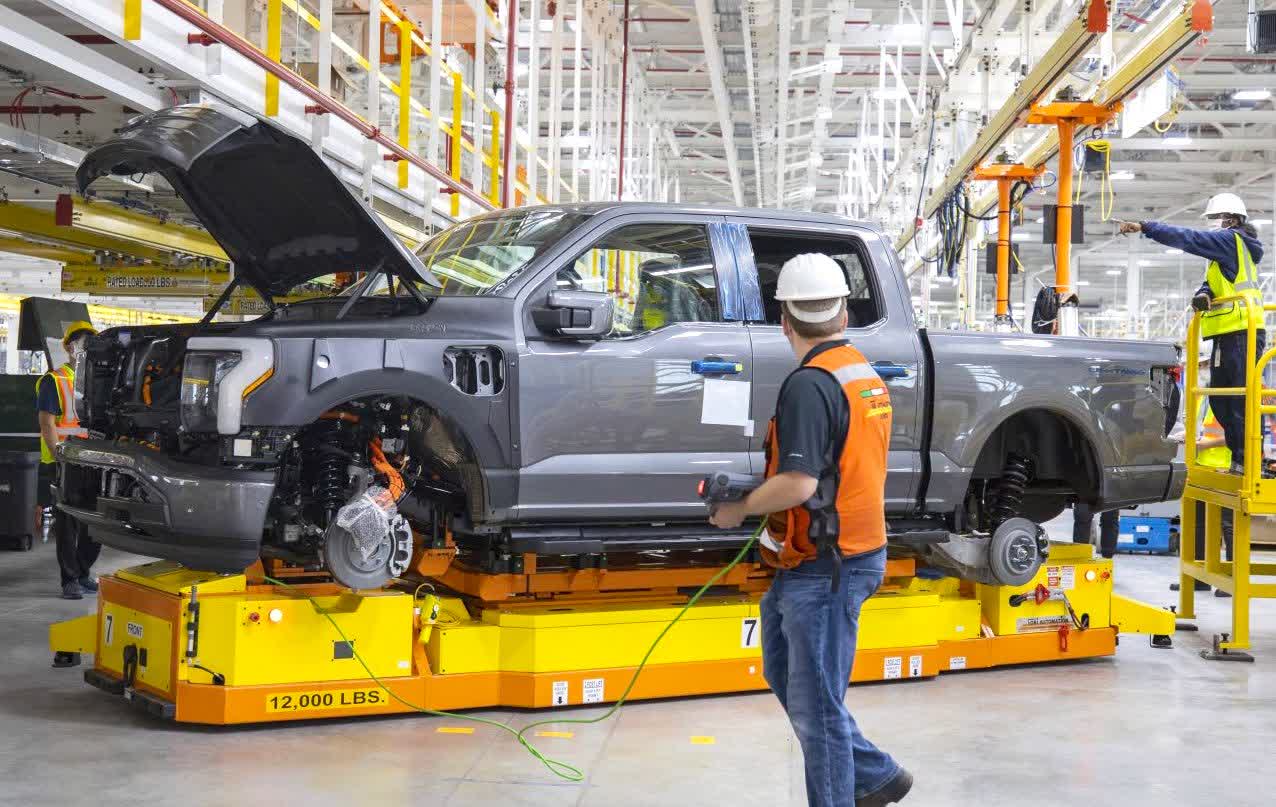The big picture: The ongoing chip shortage has caused so much trouble for the automotive industry that Detroit’s two biggest names have now decided to step into chip development. Although the initial focus is on strengthening ties with existing chipmakers to deal with near-term shortages, Ford looks to eventually improve supply and gain independence with in-house semiconductor development in the future.

There have been several reported instances this year of new vehicles piling up at car dealerships and parking lots, all seemingly fit for the road but ultimately undrivable for consumers because the manufacturer couldn’t source a chip to put inside in time. Others, meanwhile, have been forced to sell cars without functioning touchscreens.
Among US automakers, Ford was among the worst hit by the ongoing chip crisis, which led to tens of thousands of F-150 pickups piling up on the Kentucky Speedway. Now, WSJ reports that the automaker, alongside General Motors, is getting into chip development in a bid to reduce supply constraints and gain more control over this crucial component.

Ford, which recently hired back Apple’s car project lead, has ramped up its EV production plans, and its newly announced partnership with GlobalFoundries for developing chips could potentially smooth the road ahead for vehicle production.
Chuck Gray, Ford’s VP of vehicle embedded software and controls, says this agreement is partly meant to improve near-term supplies and that the company will co-develop higher-end chips with GlobalFoundries for future vehicles.

GM, meanwhile, has also set agreements with Qualcomm and NXP Semiconductors for chip manufacturing. The automaker estimates semiconductor demand to double over the next few years and says it plans to develop three core chip families with similar architectures for increased semiconductor quantity and quality.
It’ll be interesting to see if automakers can develop a more Tesla-like vertical approach to car production in the future and perhaps shorten the chip crisis that’s expected to linger on for a few more years.
https://www.techspot.com/news/92299-ford-gm-announce-plans-develop-chips-amid-ongoing.html